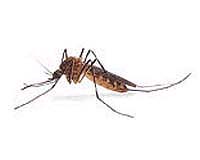 |
Exeter, England (UPI) Dec 23, 2010 British researchers say a new method of studying potentially deadly disease-causing bacteria could help speed up the process of developing vaccines. Scientists at the University of Exeter have developed a screening procedure that can quickly isolate and identify the virulent parts of the gene structures of pathogenic bacteria, a university release said Thursday. The procedure allows researchers to run thousands of tests simultaneously in which genes from the pathogen are pitted against the human blood cells that normally attack them. "By looking at the results from these tests it is possible to determine which parts of a pathogen's genetic code allow it to override immune systems," Andrea Dowling, from Exeter's Center for Ecology and Conservation, said. "From there we can focus in on those key areas to find out how the pathogen works and how we can develop vaccines." The research was published in the journal PLoS ONE.
Share This Article With Planet Earth
Related Links Epidemics on Earth - Bird Flu, HIV/AIDS, Ebola
 Examining Immunity In Emerging Species Of A Major Mosquito Carrer Of Malaria
Examining Immunity In Emerging Species Of A Major Mosquito Carrer Of MalariaNotre Dame IN (SPX) Dec 22, 2010 In notable back-to-back papers appearing in the prestigioous journal Science in October, teams of researchers, one led by Nora Besansky, a professor of biological sciences and a member of the Eck Institute for Global Health at the University of Notre Dame, provided evidence that Anopheles gambiae, which is one of the major mosquito carriers of the malaria parasite in Sub-Saharan Africa, is evolv ... read more |
|
| The content herein, unless otherwise known to be public domain, are Copyright 1995-2010 - SpaceDaily. AFP and UPI Wire Stories are copyright Agence France-Presse and United Press International. ESA Portal Reports are copyright European Space Agency. All NASA sourced material is public domain. Additional copyrights may apply in whole or part to other bona fide parties. Advertising does not imply endorsement,agreement or approval of any opinions, statements or information provided by SpaceDaily on any Web page published or hosted by SpaceDaily. Privacy Statement |